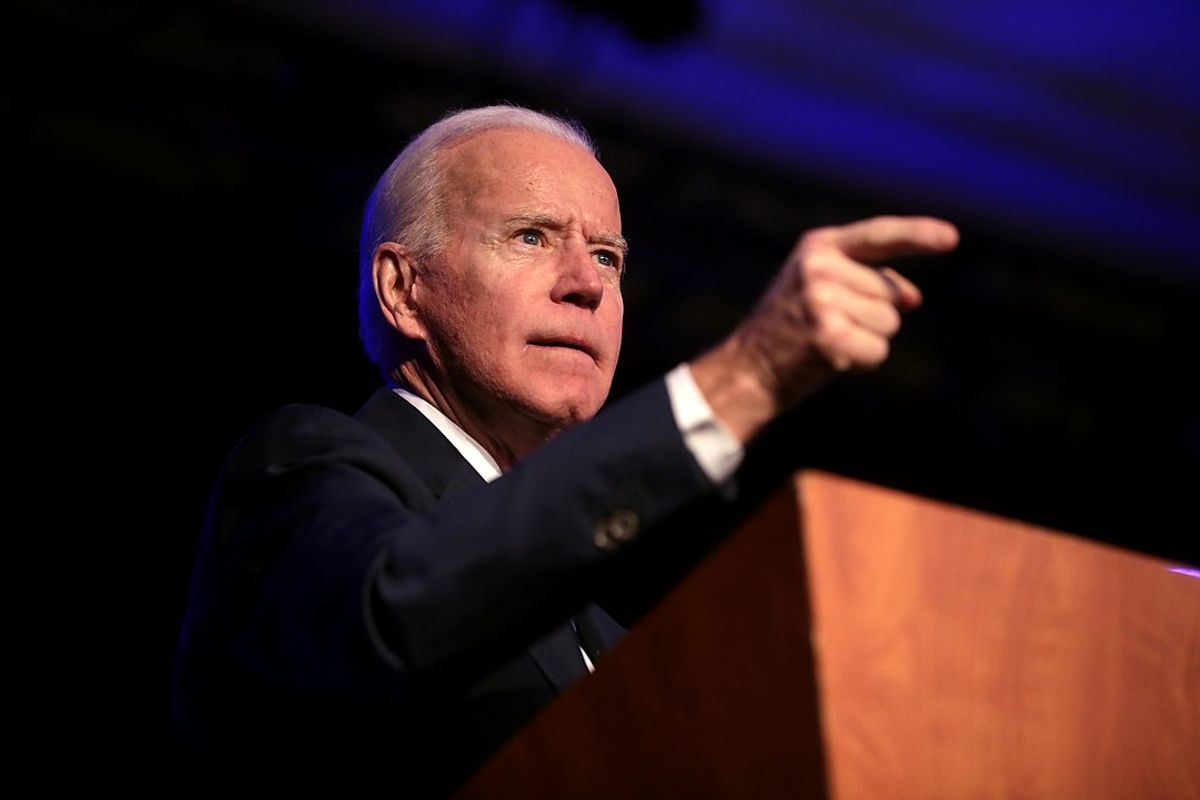U.S. President Donald Trump suspended issuance of a number of work visas until December 2020, an order that was temporarily halted by a judge. Joe Biden has said his administration would not permit Trump’s policies, including the suspension of H-1B visas.
Biden has not clearly stated which of the work visas, beyond the H-1B, would be included in his changes. Furthermore, Trump still will have administrative powers through December 2020 — the duration of the visa suspension. While Biden says he will reform the work visa process, the exact specifics are to be determined.
Origin
While not a key topic in the 2020 election debates, immigration and visas have been a major policy area for U.S. President Donald Trump’s administration. Spearheaded by White House senior adviser Stephen Miller, who was behind family separation at the border, more hardline immigration policies are in the works for a possible second Trump term. As a result of a June 2020 Trump proclamation, many foreign workers in the U.S., or workers hoping to enter the country, found their status in jeopardy, leading to questions about whether they should be looking forward to a Joe Biden presidency.
Reddit users were discussing if Biden would reverse Trump policies such as the recent suspension of work visas like the H-1B and J-1. Many are under the impression that Biden would “lift all such bans” the moment he takes office.
To answer this, we dug into Biden’s immigration platform, and found that while he plans to reverse most of Trump’s immigration policies, many of the specifics remain uncertain.
First, we'll break down the Trump proclamation from the summer of 2020.
Due to the economic disruptions caused by the coronavirus pandemic, the administration declared that “the present admission of workers within several nonimmigrant visa categories also poses a risk of displacing and disadvantaging United States workers during the current recovery.” Consequently the administration suspended the issuance of visas for foreign workers in the H-1B, H-2B, J, and L visa categories until Dec. 31, 2020. These visas largely cater to highly skilled labor, including in the medical and technology sectors.
In October 2020, after a number of business groups filed a lawsuit against the Department of Homeland Security and the State Department, a federal judge issued a preliminary injunction. District Judge Jeffrey S. White stated the president does not possess the power of a monarch to cast aside immigration laws passed by Congress. The preliminary injunction remains in effect pending trial, unless overturned on appeal, and applies only to the plaintiffs. So only the businesses who filed the lawsuit can qualify to receive visas for their employees.
Biden reacted to the new rule during a presidential town hall with members of the Asian American and Pacific Islander (AAPI) community, which is often impacted by such policies. He made his remarks around the 1:03:30 mark, when he addressed what he would do about immigration as soon as he entered office. He said, “streamlining the naturalization process, make it easier for qualified green card holders to move through his backlog, and by the way, he just ended H-1B visas the rest of this year. That will not be in my administration. The people who have come on this visa have built this country.”
It is not clear yet how Biden would reverse or change this policy, given that if he were elected, Trump would still have administrative powers until Jan. 20, 2021. The visa suspension would last through December 2020. During what is known as the “lame duck” presidency — the period after an election and before the inauguration when administrations are transitioning — many predict Trump could pass more controversial orders.
But Biden’s immigration platform plans to overturn many of Trump’s policies. He aims to make both permanent and temporary work visas more accessible. He says he will “modernize” the country’s immigration infrastructure, provide a pathway to citizenship for millions of undocumented people, and will call for a moratorium on deportations in the first 100 days of his presidency.
In one small, but key issue, however, Biden appears to toe the line.
Another rule, promulgated by the Department of Labor in October, raised the minimum salary requirement for a visa to $208,000. This policy would effectively remove entry-level positions from the H-1B applicant pool. This rule was also challenged by a number of universities and organizations in a lawsuit.t A motion hearing is scheduled for Nov. 23, 2020, in the U.S. District Court for the Northern District of California.
But, according to Biden’s platform:
High skilled temporary visas should not be used to disincentivize recruiting workers already in the U.S. for in-demand occupations. An immigration system that crowds out high-skilled workers in favor of only entry level wages and skills threatens American innovation and competitiveness. Biden will work with Congress to first reform temporary visas to establish a wage-based allocation process and establish enforcement mechanisms to ensure they are aligned with the labor market and not used to undermine wages.
By focusing on “wage-based allocation,” this policy could have the similar effect of crowding out lesser paid jobs in favor of higher paid ones, which would make it difficult for international students hoping to join entry-level positions in the U.S. labor market. But the details and impact of this reform are yet to be determined.
We reached out to the Biden campaign to learn more, and will update this post if that information becomes available.
On major immigration issues, Biden remains opposed to Trump, claiming to reverse many of his key policies during the early days of a Biden presidency. He expressed opposition to Trump’s proclamation pertaining to work visas, but did not offer details about the timeline or whether he would support ending suspensions on the other visa categories listed. As a result, we rate this claim a “Mixture.”

